Igbo Cultures And Traditions
The Igbo Language: All You Need To Know About Asụsụ Ìgbò, The Language Of The Igbo People
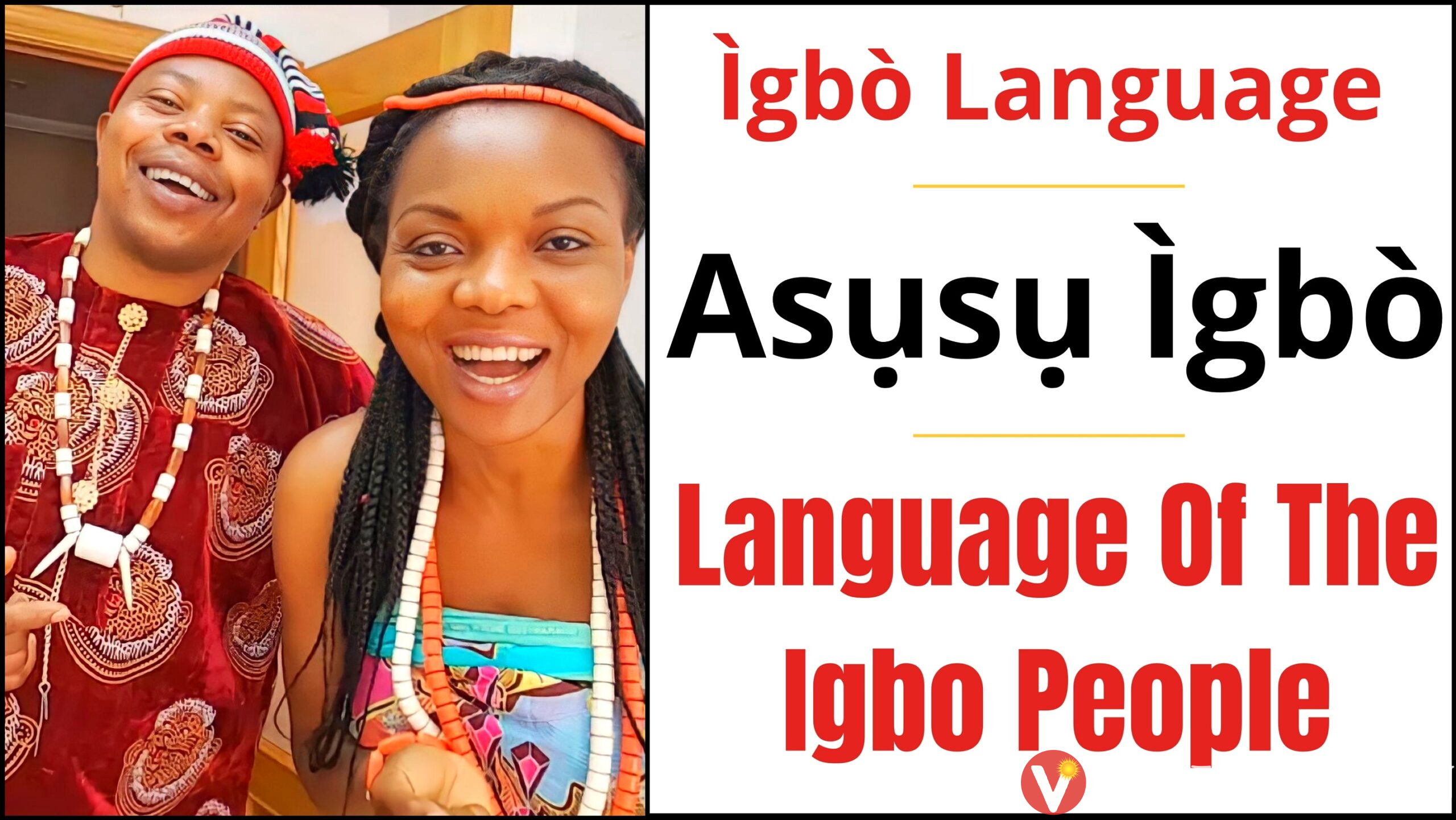
Origin Of Igbo Language
The Igbo language is one of the most spoken languages in Nigeria and is primarily spoken in southeastern Nigeria by the Igbo people. The Igbo language is one of the four major languages in Nigeria. It has a complex grammatical structure, with a unique system of tonality, which means the meaning of words is dependent on the tone used in their pronunciation.
Asusu Igbo or Igbo, as it’s simply called sometimes, constitutes a rich and expressive vocabulary, with a long history and culture of oral literature, proverbs, music, and storytelling. Some critics argue that one of the reasons why Igbo people reign supreme in the prose world in Nigeria is because of the nature of the Igbo language, which enriches them with proverbial words and culture so expressive in narration that they influence their powerful literature. The Igbo language incorporates proverbs in everyday communication. Proverbs add quality to the language.
The Igbo language has been in existence since the time of the first Igbo people that lived – Ndi Mbu. Despite the popularity of this extant language, not so much is known about its origin. What we Ndi Igbo know for a fact is that Asusu Igbo is an ancient language – one of the oldest in the world, and has been passed down orally by our noble ancestors. It is to an examination of this historical background that this writing is directed. This article will gather facts from the accessible limited resources about the Igbo language, in other to teach the people of the world about the great Igbo language.
Igbo language, just like every other language, has its origin and various historical factors that contributed to the development of the language. There’s almost no language in the world without any origin. The Igbo language belongs to the Niger-Congo family and is spoken primarily in the Eastern parts of Nigeria and some other countries, particularly in West Africa. It is estimated that there are approximately 60 million Igbo speakers in Nigeria. Many sources claim that the origin of the Igbo language can be traced back to the 9th century AD, but this is false because the Igbo are one of the oldest peoples on earth and have lived for thousands of years before the 9th century AD. The language is believed to have originated from the Proto-Igbo language, which was spoken by the ancestors of the Igbo people.
Which Igbo Language is the Central Igbo?
The Igbo language is divided into two major types – the Igbo Izugbe (standard or central Igbo) and Olu ndi (native dialect). That is the standardized Igbo language and the local dialects.
The Igbo Izugbe is a standardized version of the Igbo language that is used as a lingua franca among the Igbo people or/and speakers of the Igbo language. At the same time, Olu ndi is the non-standard version spoken by various regions of the Igbo people and differs from town to town (obodo di iche iche), depending on their proximity.
The central Igbo or Igbo Izugbe is distinguished from other Igbo dialects by its tonal system, which has high, mid, and low tones, and its unique set of vowel and consonant sounds. Igbo Izugbe was generically developed and later adopted around 1972, with its foundation rooted in the Owerri (Isuama), Anambra (Awka), and Umuahia (Ohuhu) dialects.
The Central Igbo is a core course taught in schools in southeastern Nigeria. Also, some Igbo literature texts are written in this standard dialect of the Igbo language. This language is a common language used in communication between natives of Igbo ethnicity who speak different local dialects known as Olu ndi. For instance, when an Awka man from Anambra state meets an Abakiliki man from Ebonyi state, they would switch to Igbo Izugbe so that both parties can easily understand what each other says. Although there is a prevalent spread and use of the Igbo Izugbe in Igbo land, it does not have a general acceptance among all the Igbo regions.
Which State Speaks The Real Igbo?
No Igbo region speaks central Igbo as their local dialect, so there are no real Igbo – nobody is more Igbo than the other – every Igboborn is a real Igbo. In addition, there are five major states where Igbo people are found in present-day Nigeria. These states are; Abia, Anambra, Ebonyi, Enugwu, and Imo. The Igbo people are also found in other states of Nigeria, such as Rivers, Kogi, Delta, Bayelsa, Cross River, and Benue. As discussed earlier, the Igbo language has several local dialects, and each of these dialects has its peculiar features.
There is a popular Igbo adage that says, “Igbo na-asu n’olu n’olu, mana ha kwaa ukwara, o buru otu”, meaning that, the Igbo people speak in different intonations but they are bound together by the same kin features – cultures, spirituality, and traditions. Some words may have the same spellings in the Igbo language but different pronunciations because of the variety in the tonal system.
Sometimes a word may have an entirely different name in a different dialect. For example, words such as; mmiri, ala, nri, ego, akwukwo, etc may have different pronunciations in different dialects or even different names. These variations in word names and pronunciation are more evident in Nsukka, Owerri, and Onitsha dialects. This uniqueness often helps to identify the origin of an Igbo person.
When Did Igbo Become a Written Language?
The Igbo language is a natural language entrenched in the heart of the Igbo culture and tradition. It plays a central role in Igbo culture and identity, as a true “nwa afo Igbo” is identified with good command and performance of the language.
The Igbo culture is portrayed with the Igbo language in arts, music, dance, storytelling, and folklore, and is considered a key marker of Igbo cultural heritage. The Igbo language is the language of the ancient Igbos and is traditionally an oral language.
There is no available record of a writing system for the Igbo language (Igbo Izugbe as we have it today) until the emergence of Europeans in the 15th century. Before the Western impact in Nigeria, the Igbo language was mainly an oral language, orally passed from one generation to another. However, there existed various Igbo scripts (Ichi) which used symbolysm in the expression of words.
The Igbo people became exposed to European education and European ways of writing when the Europeans brought their missionary and civilization enterprises to Igbo land. At that time, European explorers and missionaries began to develop their own written forms of many African languages based on European alphabets, and their attempts at creating a different version of writing for Africans included the Igbo language. The first recognized attempt at an imposed writing system for the Igbo language was developed by Johann Christoph Högger, a German missionary, in the late 15th century. Högger created a script based on the Latin alphabet, but his creation did not gain general acceptance.
This effort would later motivate many other attempts in the early 20th century. Therefore, in 1929, another attempt was made by a group of scholars and educators who met in Onicha and developed the Nsibidi ideographic script (from an ancient writing system shared by the Igbo and Efik), which was based on traditional Igbo symbols. The Nsibidi script encountered a similar fate to Högger’s script as it was not widely accepted but still retained its place among the circle of people who knew and used it.
Just a year after the Nsibidi script, a standardized writing system for the Igbo language was developed. The system was based on the Latin alphabet and developed by a team of Igbo scholars, including Ida Caroline Ward, a British linguist who worked mainly on African languages. This writing system is still in use to date. It has helped to establish Igbo as a modern written language and has equally played a vital role in the development of Igbo literature and education when viewed from a global of view.
The first book to publish Igbo terms was History of the Mission of the Evangelical Brothers in the Caribbean, published in 1777. Shortly afterward in 1789, The Interesting Narrative of the Life of Olaudah Equiano was published in London, England, written by Olaudah Equiano, who was a former slave, featuring 79 Igbo words. Also in early publishing was a primer for the Igbo language, produced in 1857 by Bishop Ajayi Crowther, who was also a linguist, and Simon Jonas, a young Igbo interpreter.
Is Igbo Language Dying?
There are controversies surrounding the lifespan of the Igbo language: A UNESCO report predicted: “Igbo to face the risk of possible extinction in the next 50 years if nothing is done to revive the language”. It is not out of place to make such a prediction about the Igbo language considering the recent decline in its usage and application. It is not certain whether this prediction will happen, but what is certain is that any language that is not used eventually dies. However, Asusu Igbo is currently undergoing a conscious revival among Ndi Igbo and is spoken by millions of people in Nigeria and around the world.
Today, the Igbo language is made a core course in primary, secondary, and tertiary institutions in the East of Nigeria. The language is beginning to be adopted by brands in their product adverts and also promoted through their ambassadorship deals with Igbo influencers and celebrities. Some of the popular brands promoting the Igbo language and culture include Hero, Life, Tiger Lager beer, etc. Also, artistes like Phyno, Flavour, Jeriq, Zoro, and Chike are doing fantastic work by infusing the language in their mainstream music.
In the literary world are icons like Chinua Achebe, Chimamanda Adichie, Cyprian Ekwensi, and Chukwuemeka Ike, whose works continue to promote the Igbo language and give a true identity to the Igbo culture. Others include Igbo media outlets, Igbo social media influencers, blogs like the “Voice Of The Sun” and other Igbo culture promoters. So, with these ongoing Igbo awareness movements, the Igbo language future looks promising.
What Countries Speak Igbo Language?
Apart from southeastern Nigeria where Igbo is primarily spoken, it is spoken in some other communities in West African countries and the world. The Igbo language has a significant although small community of its speaker in countries such as Equatorial Guinea, Cameroon, Sierra Leon, the United States, the United Kingdom, and others.
Is Igbo Language Spoken in Equatorial Guinea?
Equatorial Guinea is a small country in West-central Africa, which has a significant Igbo diaspora on the Island of Bioko. Igbo is one of the minority languages spoken in the country, particularly on the Island of Bioko. Bioko is known to be a home to descendants of former slaves who were freed in the nineteenth century of which the origin of the Igbo inhabitants there could be linked to. The Igbo is officially declared by the government of Equatorial Guinea as the third largest tribe after the Fang and Bubi tribes. In other words, Igbo is a recognized language in Equatorial Guinea although the variety is slightly different from the modern Igbo spoken in Eastern Nigeria. For instance, some people who have been there recounted that they say, “bia ikaa” for “come here”, which also has the same meaning in southeastern Igbo.
Is Igbo Language Spoken in Haiti?
Haiti is another country with a significant population of Igbo inhabitants who were among the enslaved Africans during the Atlantic slave trade. Haiti overturned the French colonial government and slavery in the early 19th century to become the world’s first black-led republic and the first independent Caribbean state. The country shares the Island of Hispaniola with the Dominican Republic to its east. Haitians speak what is referred to as Haitian Creole or simply Creole, a French-based Creole language. The language is recorded to have originated from contact between French settlers and enslaved Africans during the Atlantic slave trade in the French colony of Saint-Dominique (now Haiti) in the 17th and 18th centuries. According to Wikipedia, “its vocabulary derives from 18th century French while grammar is that of a West African Volta-Congo language branch, particularly the Fongbe and Igbo languages”.
Methods of Learning the Igbo Language
Learning any language, particularly Igbo, requires keen attention, effort, and time. Learning usually seems difficult for people who are learning the language as a second language because of the complexity of the language. But, regardless, there are several feasible methods of learning the Igbo language. These learning methods include the following;
- Immersion of oneself in the language: This is one of the fastest ways of learning the Igbo language; an interested Igbo learner should immerse himself or herself in a cultural Igbo society. This way, the person is involved with not just the language but also deeply connected with the culture’s intrinsic details, making the Igbo language learning easier and faster. They are exposed to the people and their way of life; thus, the arbitrariness of the language is easier for them to understand and they also get to know why and how words got their meaning and how to use them as they learn from the native speakers first-hand. Other more straightforward forms of this method of learning are through listening to Igbo music, podcasts, and radio stations, watching Igbo movies and TV shows, and interacting with native speakers of the Igbo language.
- Learning Basic Grammar and Vocabulary: This is the most typical language learning method. Understanding the basic grammar rules and developing a good vocabulary is necessary for learning how to speak Igbo. This offers Igbo learners a strong foundation in their language learning journey.
- Constant Practice: Consistency is paramount in Igbo learning. To master the Igbo language, a learner must ensure to speak it regularly to foster retention. This can be done by learning with friends or joining an Igbo language learning community.
- Open-mindedness and Seriousness: Language learning skills are crucial in learning any language. An Igbo language learner must be open-minded to enable them to learn the language perfectly because, in the process of learning, they may encounter some components of the Igbo culture they are not familiar with. However, they should always remember that learning the Igbo language is their sole aim. Also, with seriousness, Igbo language acquisition can be less stressful and fun.
- Use of Language Learning Tutors, and Apps: Technology has simplified almost all the sectors of human endeavors; one can easily learn any language including the Igbo language anywhere in the world using some language learning apps or professional language tutors. This offers Igbo language learners thorough and speedy learning.
Where to Learn The Igbo Language?
The Igbo language can be learned from anywhere in the world, thanks to technology. However, there are recommended places for easy learning of the Igbo language. These places include; at home from parents or caregivers, Igbo villages, and Igbo towns such as Onitsha, Enugwu, Oka (Awka), Aba, Owerri, etc., in schools, online classes, language books, social media, Igbo movies, and others.
It is without doubt to assert here that, the Igbo language is beautiful, complex as it is, and a testament to the cultural wealth of the Igbo people and amongst all, their diversity. As a language that has survived centuries of colonization and modernization, it continues to serve as a symbol of the Igbo people’s resilience and identity. For anyone interested in learning about Igbo culture or people, learning the Igbo language is the first place to begin.
This Article Was Written By Chuka Nduneseokwu, Editor-In-Chief, of Voice Of The Sun
Please Support and DONATE To Us. Help Us In Preserving Our History, Culture and Beliefs as Ndi Igbo. CLICK HERE to assist us financially.
-
![How Igbo People Started Becoming Christians 181 Years Ago (1841–2022): A Brief History Of Christianity In Ìgbòland [Part I] How Igbo People Started Becoming Christians 181 Years Ago (1841–2022): A Brief History Of Christianity In Ìgbòland/Among The Ìgbò [Part I]](https://voiceofthesun.com/wp-content/uploads/2022/07/How-Igbo-People-Started-Becoming-Christians-181-Years-Ago-1841–2022-A-Brief-History-Of-Christianity-In-Igboland-Among-The-Igbo-Part-I-1-400x240.jpg)
![How Igbo People Started Becoming Christians 181 Years Ago (1841–2022): A Brief History Of Christianity In Ìgbòland [Part I] How Igbo People Started Becoming Christians 181 Years Ago (1841–2022): A Brief History Of Christianity In Ìgbòland/Among The Ìgbò [Part I]](https://voiceofthesun.com/wp-content/uploads/2022/07/How-Igbo-People-Started-Becoming-Christians-181-Years-Ago-1841–2022-A-Brief-History-Of-Christianity-In-Igboland-Among-The-Igbo-Part-I-1-80x80.jpg) Igbo History and Origins3 years ago
Igbo History and Origins3 years agoHow Igbo People Started Becoming Christians 181 Years Ago (1841–2022): A Brief History Of Christianity In Ìgbòland [Part I]
-
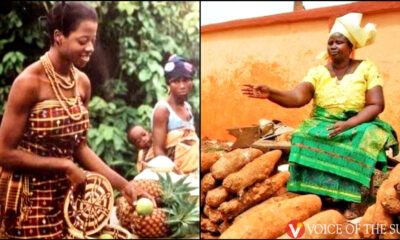
 Igbo Cultures And Traditions3 years ago
Igbo Cultures And Traditions3 years agoThe Four Igbo Market Days and Their Significance In Odinala na Omenala ÌGBÒ
-
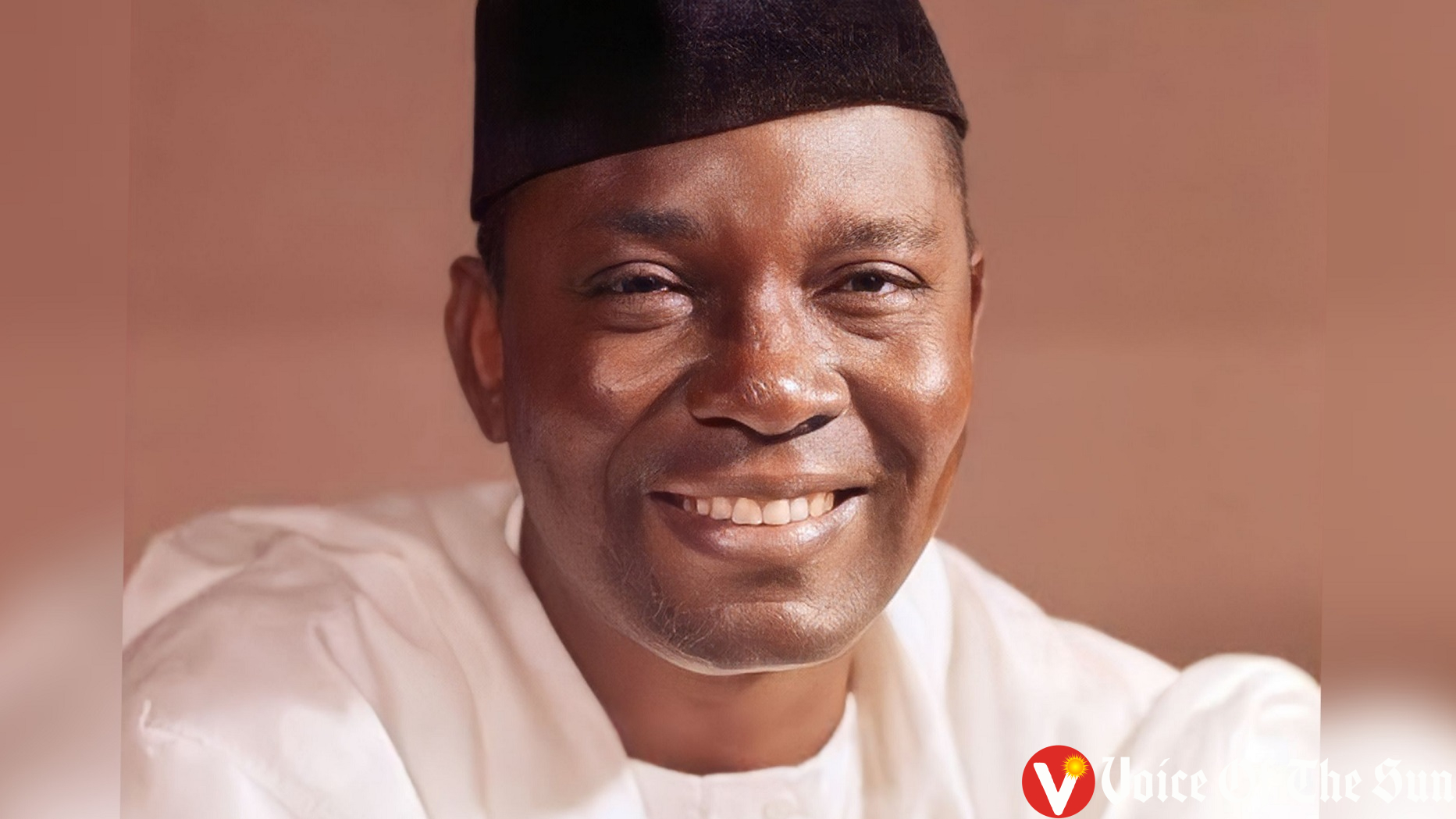
 Igbo History and Origins2 years ago
Igbo History and Origins2 years agoNnamdi Azikiwe: Legacy of a Nigerian Nationalist And Igbo Icon
-
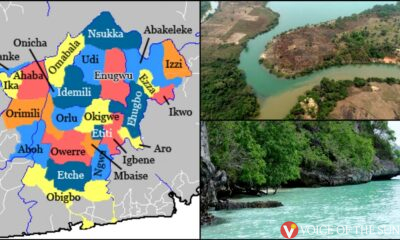
 Igbo News3 years ago
Igbo News3 years agoIgbo Land Is Not Landlocked – We Have The Deepest And Shortest Access To The Atlantic Ocean
-
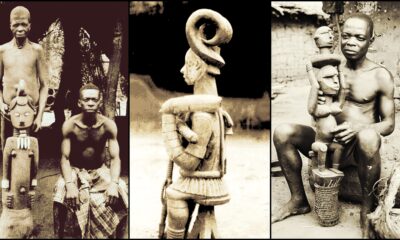
 Igbo Spirituality2 years ago
Igbo Spirituality2 years agoÌgbò Ancestors Did Not Worship Idols and Demons – A Journey Into Ịgọ Mmụọ In Odinana Ìgbò
-
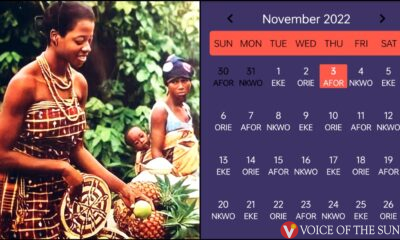
 Igbo Cultures And Traditions2 years ago
Igbo Cultures And Traditions2 years agoWhich Igbo Market Day Is Today – Get The Complete Igbo Calendar
-
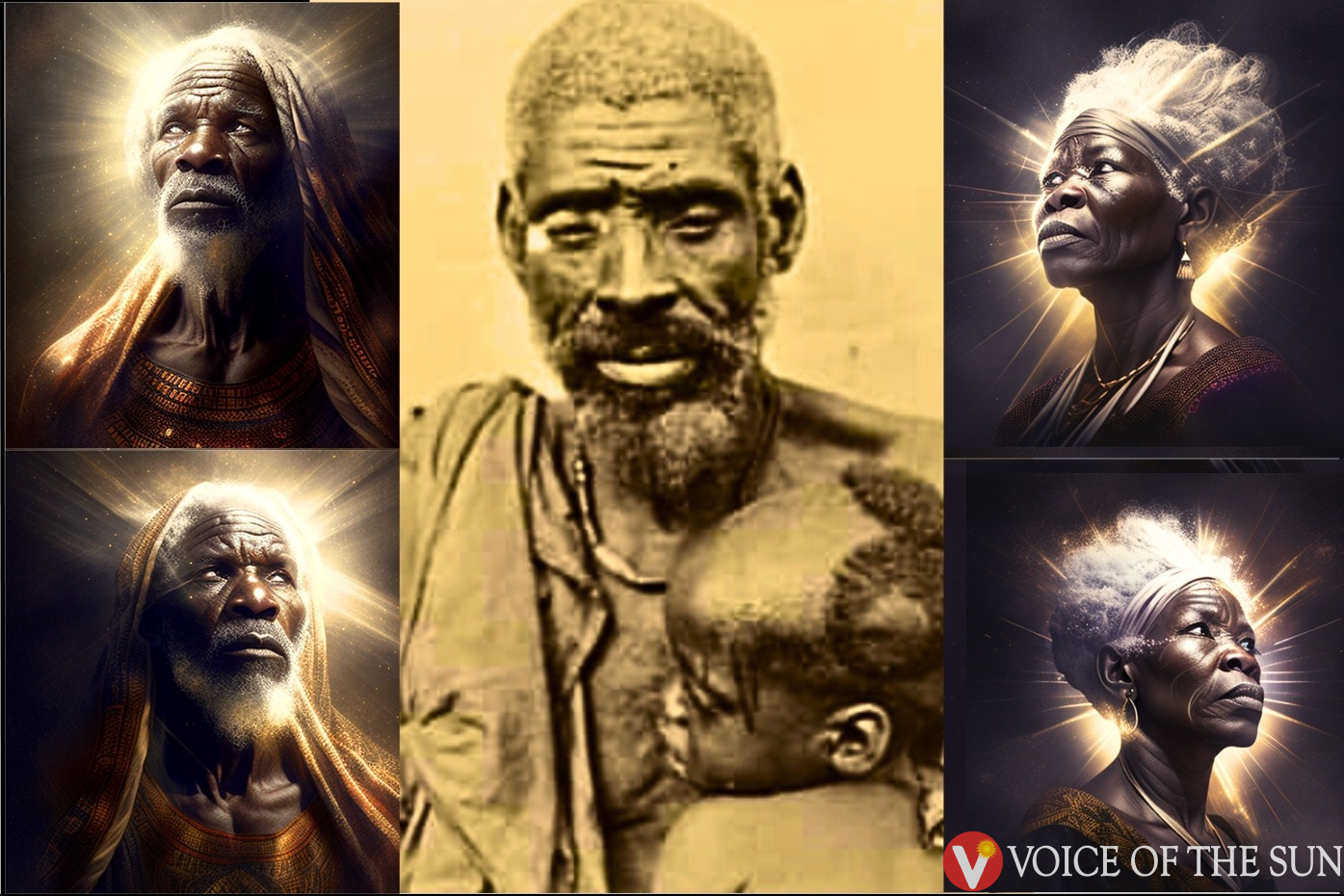
 Igbo Spirituality2 years ago
Igbo Spirituality2 years agoUnderstanding Ndị Ịchie In Igbo Cosmology: Who Are Ndi Ichie In Odinana na Omenana Ìgbò?
-

 Igbo History and Origins2 years ago
Igbo History and Origins2 years agoChukwuemeka Odumegwu Ojukwu: The Life And Legacy Of An Igbo Hero
